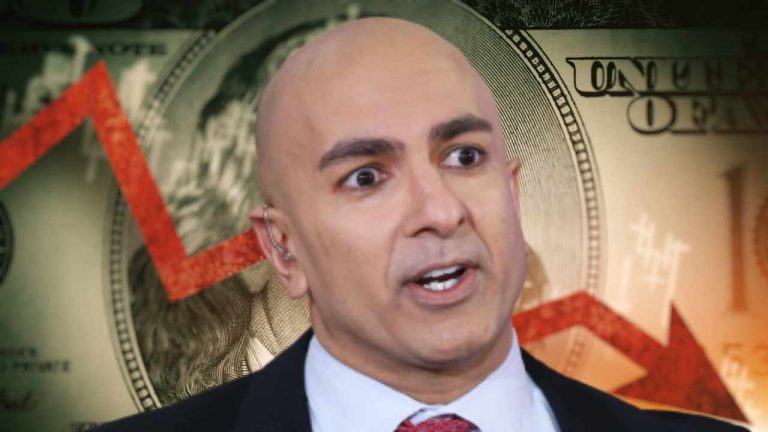Fed Bank President: Banking Crisis Tips US Economy Toward Recession

The president of the Federal Reserve Bank of Minneapolis, Neel Kashkari, says the current banking crisis has pushed the U.S. economy closer to a recession. “We have fundamental issues, regulatory issues facing our banking system,” the Fed official stressed.
Neel Kashkari on U.S. Economy, Banking Crisis, Recession
Federal Reserve Bank of Minneapolis President Neel Kashkari shared his thoughts on the state of the U.S. economy, the current banking crisis, and whether the U.S. is headed toward a recession in an interview with CBS News Sunday.
Responding to a question about whether the present banking crisis has caused the U.S. economy to edge closer toward a recession, Kashkari said:
It definitely brings us closer. Right now, what’s unclear for us is how much of these banking stresses are leading to a widespread credit crunch.
“That credit crunch … would then slow down the economy,” he cautioned, noting that the Fed is monitoring the situation “very, very closely.”
“Such strains could then bring down inflation. So we have to do less work with the federal funds rate to bring the economy into balance,” Kashkari continued. “But right now, it’s unclear how much of an imprint these banking stresses are going to have on the economy.”
Several major banks, including Silicon Valley Bank and Signature Bank, failed in recent weeks, prompting the Federal Reserve, Treasury Department, and Federal Deposit Insurance Corporation (FDIC) to step in and protect depositors.
Kashkari was asked whether more regulations are needed to prevent bank failures and if the FDIC deposit insurance should be raised above $250,000. Additionally, he was questioned whether the 2018 rollbacks on the regulation of mid-sized banks should be reinstated. The Economic Growth, Regulatory Relief, and Consumer Protection Act of 2018 reversed some of the regulations that were implemented following the 2008 financial crisis.
The Fed official replied:
Well, we have fundamental issues, regulatory issues facing our banking system. I have argued for years that the biggest banks in the world are still too big to fail.
Commenting on deposit outflows from smaller banks to larger institutions, the Fed bank president stressed: “The reason that deposits are flowing to the big banks, the reason that Credit Suisse was bailed out by the Swiss government, is because banks have this premium position, and it’s unfair.” He elaborated:
It’s an unfair playing field that puts enormous pressure on regional banks and community banks, and that needs to be addressed. We need regional banks in America, we need community banks in America.
“Once we get through this stress period, we have to come up with a regulatory system that both ensures the soundness of our banking system, but it’s also fair and even, so the community banks and regional banks can thrive. We do not have that today,” Kashkari concluded.
Some people have urged the government to extend their bailout to smaller banks. Billionaire Bill Ackman recently said, “We are heading for a train wreck,” warning of permanent damage to smaller banks if the government allows the current banking crisis to continue.
What do you think about the statements by Federal Reserve Bank of Minneapolis President Neel Kashkari? Let us know in the comments section below.
Register now to receive up to $255 welcome bonus. Let cryptocurrency change your life Register now to receive up to $255 welcome bonus. Let cryptocurrency change your life